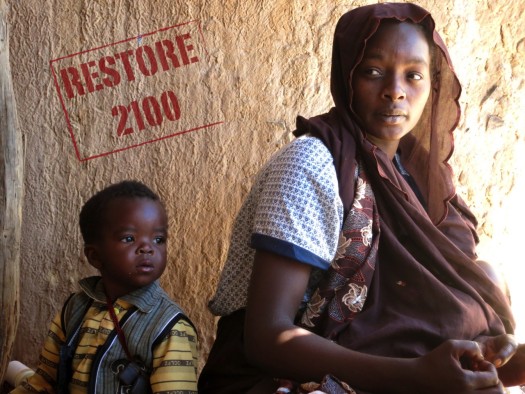
Editor's Note: This blog was written by partner organization i-ACT. For more information, please read their Refugee Rations report and visit the RESTORE 2100 campaign site.
It’s been over a year since refugees from Darfur living in 12 camps in eastern Chad have been experiencing drastic cuts in food rations. Based on recent household surveys, interviews with caregivers of preschool students, home visits, and conversations with refugees from multiple camps, it is clear that the cuts are having an alarming impact on the health and lives of the over 350,000 Darfuris who began arriving as refugees more than 12 years ago. These cuts in food come at the same time as other critical services are being reduced. All of this appears to be a response to funding shortfalls within the UN Refugee Agency (UNHCR) and the World Food Program (WFP), as well as a strategy by the humanitarian community and the Chadian government to move the refugees towards “self reliance” and “integration;” a process that could ultimately lead to removing the protection that comes with the status of refugee.
This is why we've launched the RESTORE 2100 campaign. During this campaign that will go for as long as needed, we are asking the international community, and in particular the U.S. Government, to immediately restore food rations to Darfuri refugees to the World Food Program minimum standard of 2100 calories per person, per day. As the UN Refugee Agency (UNHCR) has reported, refugees are now receiving approximately 800 calories, with very few options to make up the difference. Mothers are faced with the desperate need to find enough food for their children on a daily basis, once their monthly rations run out before half of the month has gone by.
Please join us in this campaign. You can LEARN more about refugee food insecurity, SIGN a petition asking our leaders to lead on restoring rations to the full 2100 calories, and if you can, GIVE to our program that will help improve the health and nutrition of the youngest and most affected.
The i-ACT team is currently on their 21st trip to eastern Chad; read their blog to follow the journey and learn more.
i-ACT, a nonprofit organization based in California, focuses on educating and mobilizing the public on issues related to mass-atrocities and genocide. It began visiting the Darfuri refugee camps in eastern Chad in 2005, and has now traveled to the region 21 times. Establishing strong relationships with the refugee community, i-ACT has implemented a range of projects directly serving and empowering the population in the camps through education, sports, arts, and technology.
Photo credit: i-ACT

